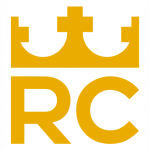

Students must choose one of the following streams at admission:
Spiritual Care
The spiritual care stream prepares students for specialized ministry in a variety of settings, including in healthcare, educational, and spiritual care/chaplaincy settings. As a distinct field of study, this stream invites students to train in the specialized skills of pastoral care.
Spiritual Direction
This stream prepares students to provide one-on-one and small group spiritual accompaniment, rooted in the Christian spiritual traditions, in parish, retreat centre, and private settings. As a distinct field of study, this stream invites students to train in the specialized skills of spiritual accompaniment as a unique type of ministry.
Social Justice Ministries
This stream will be of interest to applicants seeking to take up ministries in religious and secular social service agencies and non-governmental agencies, particularly those attentive to providing direct service to disadvantaged populations and persons, to advocating for a more just society, and the building of the common good and prepares students to analyze the need social change and provides training for leadership in complex and rapidly changing social systems.
NOTE: Regis St. Michael’s does not offer the conjoint Certificate in Spiritual Care and Psychotherapy (SCP Certificate). This certificate is only offered as part of the MPS at Emmanuel College and Knox College.
The MPS program prepares graduates to:
MPS applicants must fulfill the following minimum requirements:
The Master of Pastoral Studies (MPS) requires twenty (20) courses (or 10 full-course equivalents).
PROGRAM DURATION
SPIRITUAL CARE STREAM
Faith Foundation Courses. Seven (7) courses.
Ministry Core. Three (3) courses in Catholic Spiritual Care.
Stream Courses. Seven (7) courses in Spirituality & Pastoral Care, a Practicum and a Capstone course.
Electives. Three (3) courses.
SPIRITUAL DIRECTION STREAM
Faith Foundation Courses. Seven (7) courses.
Ministry Core. Three (3) courses in a theology of Catholic ministry.
Stream Courses. Eight (8) courses in Ministry, Spirituality and Spiritual Direction, a Practicum, and a Capstone course.
Electives. Two (2) half-courses.
SOCIAL JUSTICE MINISTRY STREAM
Faith Foundation Courses. Seven (7) courses.
Ministry Core. Three (3) courses in a theology of Catholic ministry.
Stream Courses. Seven (7) courses in contemporary ministry contexts, a practicum and capstone course.
Electives. Three (3) courses.
Application materials common to all certificate programs, basic degrees, and ecclesiastical degrees (see Admissions Process), plus/and more specifically: